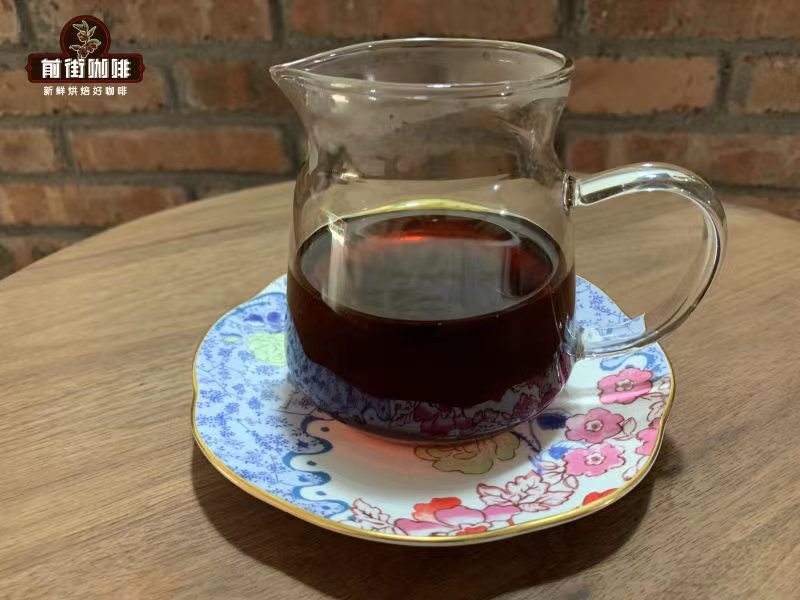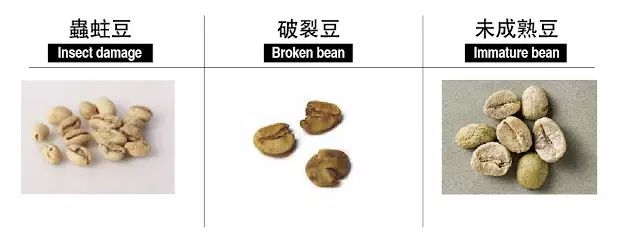What is the reason why the coffee is too bitter? What substances does the bitterness of coffee come from and how to prevent it from being too bitter?
Bitterness has become a terrible word in the boutique coffee industry. We all know that good coffee should be sweet and balanced, may be a little sour, and there is absolutely no need to add sugar to make it delicious. What makes coffee bitter-is it always that bad?
Doesn't it taste bitter?
Bitterness is not always a bad thing. In fact, if your coffee doesn't taste bitter at all, you may find it too sour or too sweet. The key is balance. A small amount of bitterness will help ensure complexity and complement other flavors-rather than overwhelming. That's the problem. For most of us, we are more likely to drink too much bitter coffee than too much sour coffee in our lives. This trend has led to strong opposition to the actually essential characteristics of high-quality coffee. However, there is no doubt that excessively bitter coffee is a bad thing-so let's take a look at what the real bitterness is and how we can avoid getting too much bitterness in our coffee.

What is bitterness?
Everyone remembers what they have tasted. In many cases, this "bitter" food or drink may not be bitter for others. This feature is a perceptual taste, which means that it varies from person to person. It is also important to note that it is not just the taste that produces bitterness. Taste is a combination of many things, including smell, emotion, music and altitude. So let's see what causes the bitterness of coffee.
Where does bitterness come from?
People think that the tongue is divided into a "taste map", different regions feel sweet, salty, sour and bitter. But now, we know you can taste it on the whole tongue. This is because the sensory cells of our tongues contain a lot of protein. Of these, about 35 (according to data from the American Institute of Health Care quality and efficiency) react with compounds in food to produce bitterness. This means that the bitterness of coffee depends on these compounds, which are called phenolic compounds. Some of the most typical are chlorogenic acids, which account for 8% of the weight of green Arabica coffee beans and have a great impact on the sensory elements of coffee. There are many kinds of chlorogenic acid, but there are two you should know: 5-caffeoylquinic acid, the most common in raw coffee, 2-CGA, has a special effect on the bitterness of coffee. Although most of the bitterness of coffee comes from chlorogenic acid, caffeine also plays a role. Complex flavor compounds in coffee interact with proteins in tongue taste buds.
Bitter beans when we talk about the bitterness of coffee, we usually think of roasting-but some coffees are more bitter than others. Robusta is much more bitter than Arabica. This is because it contains more chlorogenic acid and caffeine. Robusta's chlorogenic acid accounts for 10% of dry weight-2% more than Arabica coffee. More importantly, Robusta coffee contains almost twice as much caffeine as Arabica coffee. However, it is not just the type and variety of coffee that affect its bitterness. In 2006, Adriana Farah and Carmen Marino Donangelo published a study on phenolic compounds in coffee in the Brazilian Journal of Plant Physiology. They believe: "the variety, maturity and, to some extent, environmental conditions and planting methods are important determinants of chlorogenic acid in raw coffee beans, and will also affect the composition of the final coffee." They also proposed treatments, especially traditional Indian monsoon coffee, and found that it could reduce chlorogenic acid and bitterness. In addition, immature beans also contain more chlorogenic acid.

Does baking add bitterness?
Some changes will occur in chlorogenic acid during the whole baking process. Although chlorogenic acids are the cause of the bitterness in coffee, they are not actually bitter. Until the baking process decomposes them into chlorogenic acid lactone and indene. These indolines are the cause of bitterness. In addition, the content of indene in coffee is related to the baking characteristics.
Light to moderate roasting contains more acid lactone, producing Hoffman's pleasant, coffee-like bitterness. On the other hand, deeper baking contains more benzene, which produces "a lingering bitterness".
As a result, lightly to moderately roasted coffee is more likely to taste less bitter, but still contains classic coffee aromas and flavors that we are familiar with and love. However, bitterness exists in the taster's tongue.
How to avoid coffee being too bitter
So does this mean that buying lightly roasted high-quality Arabica coffee can avoid drinking bitter coffee? I can't. Brewing can also affect the final taste of a cup of coffee. To avoid bitterness, do not over-extract coffee. This is because the bitterness increases in the late brewing period. There are many variables that affect the extraction-brewing method, grinding degree, water temperature, brewing time. But you can use some guidelines to make it less bitter. First of all, use the grinding size recommended by the brewing method. As the grinding size decreases, the total surface area of the coffee increases, so more flavor may be extracted than you expected (in addition, dripping / pouring during the brewing process will increase the brewing time and therefore the amount of extraction). The second is the water temperature. The hotter the water is, the more flavor and aroma compounds are extracted. If your coffee is unbearably bitter, you can try water with a few degrees lower temperature.
There is also brewing time, if your coffee is too bitter, it may take too long to brew. The extraction process is a delicate balance of all these factors. If you adjust one (such as grinding), the other (such as brewing time) may also be affected. Bitterness-it's not all bad, but when it drowns out all the other flavors in coffee, it becomes a problem.
Fortunately, as we learn more about the compounds behind this flavor, we are learning more and more about how to control it. Bitter-that's not bad, but when it overwhelms all the other flavors in coffee, it can be a problem. Fortunately, as we learn more about the compounds behind this flavor, we also know more and more about how to control its development and extraction. Therefore, after long-term practice and learning the operation methods of some big names, we can slowly produce a perfectly balanced, complex and bitter coffee.
Important Notice :
前街咖啡 FrontStreet Coffee has moved to new addredd:
FrontStreet Coffee Address: 315,Donghua East Road,GuangZhou
Tel:020 38364473
- Prev

Does milk, latte and mocha in coffee have anything to do with milk?
When it comes to espresso, lattes, mochas, cappuccinos, and their flower shapes, they all float in your mind. Although their ingredients are the same, you will still be foolish if you don't know their proportion. All you can say is that when you order coffee, you will say, "I want something sweet, or something bitter." Qianjie Coffee will show you something.
- Next

What are the defective beans in coffee? Effects of primary defective beans and secondary defective beans on coffee flavor
Picking beans is a term that has been mentioned constantly in the boutique coffee industry in recent years. What exactly is picking beans? The coffee beans bought by ordinary consumers are roasted ripe beans, and the quality of raw beans can no longer be known. It is difficult to swallow is not terrible, terrible is the coffee beans with defective beans, after brewing may carry biotoxins, serious harm to health, so manual selection has become important and unbearable
Related
- Beginners will see the "Coffee pull flower" guide!
- What is the difference between ice blog purified milk and ordinary milk coffee?
- Why is the Philippines the largest producer of crops in Liberia?
- For coffee extraction, should the fine powder be retained?
- How does extracted espresso fill pressed powder? How much strength does it take to press the powder?
- How to make jasmine cold extract coffee? Is the jasmine + latte good?
- Will this little toy really make the coffee taste better? How does Lily Drip affect coffee extraction?
- Will the action of slapping the filter cup also affect coffee extraction?
- What's the difference between powder-to-water ratio and powder-to-liquid ratio?
- What is the Ethiopian local species? What does it have to do with Heirloom native species?

